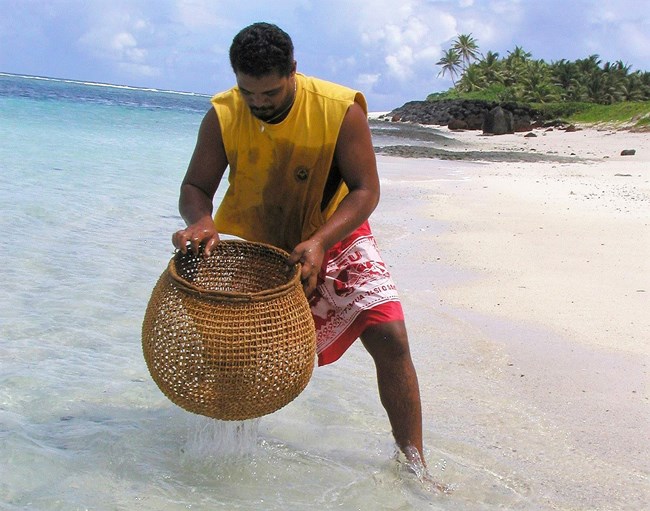Last updated: February 7, 2023
Article
Window to the Past: Unlocking Samoan Traditional Knowledge

National Park of American Samoa
Thanks to a Cooperative Ecosystem Studies Unit (CESU) agreement, the University of Hawaiʻi at Mānoa and the National Park of American Samoa recently completed a Traditional Use Study. The study documents the ways the Samoan people have used and managed land and water resources on the islands for over three millennia.
The Samoan people have an extensive traditional knowledge base and their relationship to the land and sea is deeply rooted. Maintaining traditional use of these resources in the park and providing continued access by community members is critical for the continuation of a thriving culture. Social, political, and environmental changes have impacted access and resource abundance over time. In 1988, the U.S. Congress established the National Park of American Samoa to protect the ecological balance of the tropical forests and associated reefs, and to preserve the archeological and cultural resources. In 1993, the National Park Service signed a unique 50-year lease with the American Samoa Government. The lease includes land owned by the local villages and managed under the Samoan matai communal land system which is based on oral tradition and custom. Resources within the park are key components of village life. Understanding traditional use of specific plants, marine species, and sites of cultural significance is fundamental to sound park management. The information that is gathered in the Traditional Use Study can help the park make decisions regarding resources that require special treatment or protection, enhance relationships with the villages, and develop agreements with the Samoan community that is mutually beneficial.
This project was conducted in partnership with the University of Hawaiʻi at Mānoa through the Hawaiʻi-Pacific Islands Cooperative Ecosystem Studies Unit, HIPI# P18AC01413.
CESUs are a consortium of federal and non-federal partners that work together to protect our nation’s natural and cultural heritage. From managing museum collections and creating cultural histories, to restoring ecosystems and mitigating climate change, the network makes it easy for experts at universities, museums, research institutes, and other organizations to contribute their knowledge and skills to the preservation and understanding of public resources.
